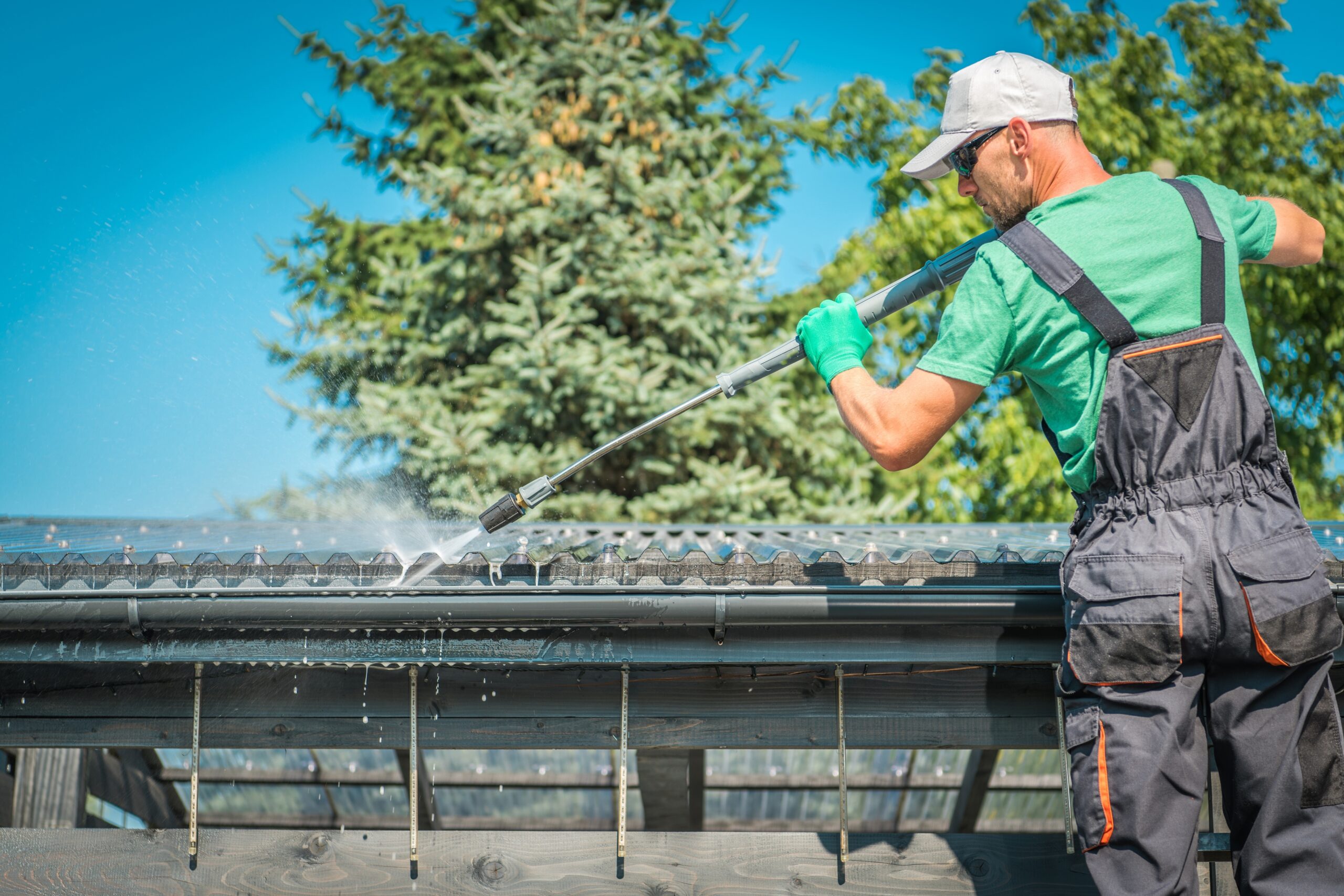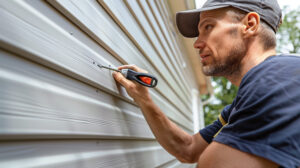Are your gutters overflowing every time it rains? Can you see plants growing out of them from the ground? If so, it’s time to give your home’s drainage system some much-needed attention. Regular gutter maintenance isn’t just about keeping up appearances—it’s about protecting your home from potentially serious water damage.
In this comprehensive guide, we will walk you through everything you need to know about how to clean and repair gutters like a pro. From safety preparations to tackling common problems, you’ll have all the know-how to keep your gutters flowing freely and functioning properly year-round.
Why Gutter Maintenance Matters
Before diving into the how-to, let’s talk about why cleaning and repairing your gutters is so important. Your gutters serve one critical purpose: channeling rainwater away from your home’s foundation, walls, and landscaping. When they become clogged or damaged, water can overflow and cause:
- Foundation cracks and settling
- Basement flooding
- Roof and fascia board rot
- Landscape erosion
- Mold and mildew growth
- Insect infestations
Regular gutter maintenance prevents these issues and can save you thousands in potential repair costs. Now, let’s get into the nitty-gritty of how to clean and repair gutters properly.
Essential Tools for Gutter Cleaning and Repair
To clean and repair gutters effectively, you’ll need:
- A sturdy extension ladder
- Garden trowel or gutter scoop
- Heavy-duty gloves
- Bucket for debris
- Garden hose with spray nozzle
- Safety goggles
- Gutter sealant
- Screwdriver or drill
- Replacement hangers or brackets (if needed)
How To Clean Gutters Safely and Effectively
Prioritize Safety First
When learning how to clean gutters, safety should always be your top priority. Always place your ladder on firm, level ground and have someone hold it steady if possible. Wear protective gear, including non-slip shoes, long sleeves, pants, rubber gloves, and safety goggles.
Never lean too far to the side when on a ladder—instead, climb down and reposition the ladder as needed. Your safety is worth those extra few minutes!
Start with Debris Removal
The first step in roof gutter cleaning is removing the accumulated debris. Begin near a downspout and work your way along the gutter length. Using your garden trowel or gutter scoop, remove leaves, twigs, and sediment, placing them in your bucket.
Some people prefer working when gutters are slightly damp, as this makes the debris less dusty and easier to scoop out. However, avoid cleaning during or immediately after heavy rain when gutters are full of water and heavier.
How To Clean Rain Gutters? Clear Those Downspouts
Downspouts are often where the worst clogs occur in your gutter system. After clearing the horizontal gutters, check the top of each downspout for blockages. Remove any debris you can reach, then use your garden hose at full pressure to flush water through the downspout.
If water backs up instead of flowing freely, you may have a clog deeper in the downspout. Try using a plumber’s snake to break up the blockage, or in stubborn cases, you might need to disassemble the downspout to clean it thoroughly.
Flush the Entire System
Once the visible debris is gone, it’s time to flush your gutters. Using your garden hose, spray from the end opposite the downspout toward the outlet. This rinses away smaller particles and lets you check for proper water flow and leaks.
As you’re flushing, pay close attention to how water moves through the system. Is it flowing smoothly toward and down the downspouts? Or is it pooling in certain areas? Pooling indicates a slope problem that needs addressing during your repair phase.
How To Repair Gutters: Tackling Common Problems
Finding and Sealing Leaks
As you flush your gutters, keep an eye out for leaks at seams and corners. Mark these spots for repair. To fix leaks:
- Clean and dry the area thoroughly
- Remove any old, failed sealant
- Apply new gutter sealant to joints, seams, or small holes
- Allow the sealant to cure completely before testing with water
For particularly stubborn leaks, you might need to apply sealant to both the inside and outside of the gutter joint.
Fixing Sagging Gutters
Gutters that sag can’t properly channel water and will eventually pull away from your house. If you notice sections that aren’t properly aligned:
- Check for loose or missing hangers—these should be spaced every 2-3 feet
- Replace any bent or broken hangers
- Add additional hangers in sagging areas
- Ensure screws are securely fastened to solid fascia board (not rotted wood)
Remember that gutters need a slight downward slope toward the downspouts (about 1/4 inch for every 10 feet) to ensure proper drainage.
Addressing Rust and Holes
For metal gutters, rust can become a serious problem if left untreated. Small rust spots can be repaired by:
- Gently sanding the rusty area down to bare metal
- Applying a rust-inhibiting primer
- Finishing with gutter paint that matches your existing gutters
For small holes, apply waterproof gutter sealant or use a patch kit. However, if sections of your gutter have extensive rust or large holes, it’s usually more cost-effective to replace that section entirely.
Realigning for Proper Drainage
If you noticed water pooling during your flushing test, your gutters likely need adjustment for proper slope. This is an essential part of how to repair gutters effectively:
- Loosen (but don’t remove) the gutter hangers in the section that needs adjustment
- Gently adjust the gutter position to create a slight downward slope toward the downspout
- Tighten all hangers securely once the proper slope is achieved
- Test with water to confirm proper flow
Maintenance Tips to Extend Gutter Life
Now that you know how to clean and repair gutters, let’s talk about keeping them in top shape year-round:
- Establish a Regular Cleaning Schedule
Cleaning frequency depends on your surroundings. If you have many overhanging trees, plan to clean gutters in late spring and again in late fall after the leaves drop. Homes without nearby trees might only need annual cleaning.
- Consider Gutter Guards
While not completely maintenance-free, quality gutter guards can significantly reduce how often you need to clean your gutters. They prevent large debris from entering while allowing water to flow through.
- Inspect After Severe Weather
Strong storms can damage gutters or deposit additional debris. A quick visual inspection after severe weather can help you catch problems early.
- Address Problems Promptly
Small issues with gutters tend to become big problems if ignored. That tiny leak might seem inconsequential now, but it can lead to water damage to your fascia boards and eventually your home’s interior.
When to Call the Professionals
While learning how to clean and repair gutters yourself can save money, some situations call for professional help:
- Multi-story homes with gutters that are difficult to reach safely
- Extensive damage requiring large sections of replacement
- Signs of fascia damage behind gutters
- If you’re uncomfortable working on ladders or have physical limitations
Professional gutter services have specialized equipment and experience to handle these challenging situations safely and efficiently.
Conclusion
Taking care of your gutters isn’t the most glamorous home maintenance task, but it’s certainly one of the most important. By following this guide, you’re protecting your home from water damage and extending the life of your gutter system.
Need professional gutter cleaning services? Trust Quality Garage Doors & Gutters for expert gutter cleaning, installation, and protection services. Contact us today for a free estimate and keep your home safe, dry, and damage-free.



